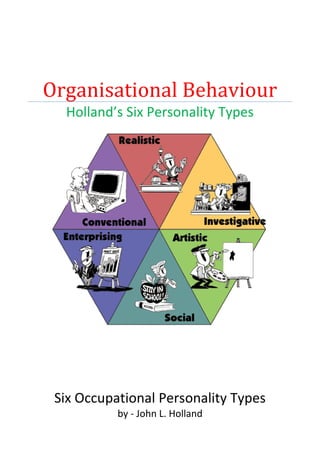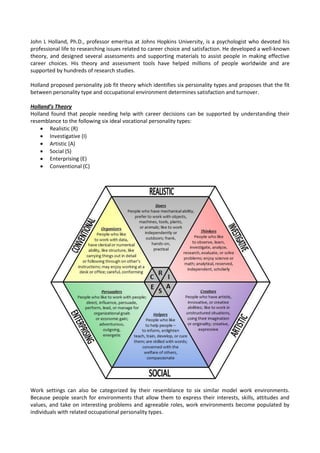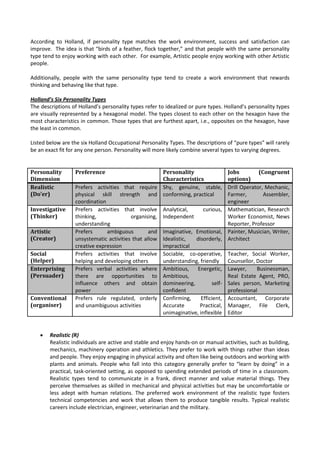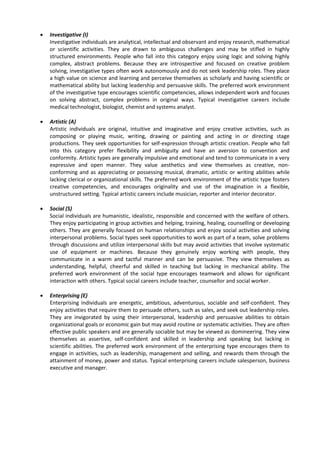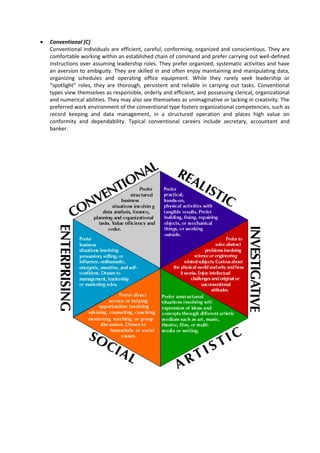John Holland developed a theory of vocational personality types that identifies six personality types: Realistic, Investigative, Artistic, Social, Enterprising, and Conventional. He proposed that people and work environments can be categorized into these six personality types, and that the best career fit occurs when a person's personality type matches the type of work environment. The theory helps explain career satisfaction and turnover. Each personality type has distinct preferences, skills, values, and career examples that provide a framework to help people choose careers aligned with their interests and strengths.
